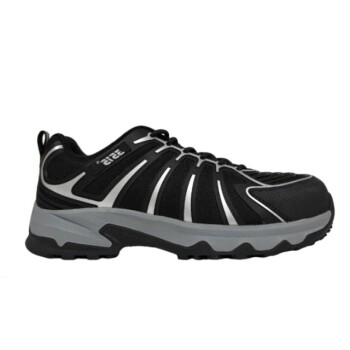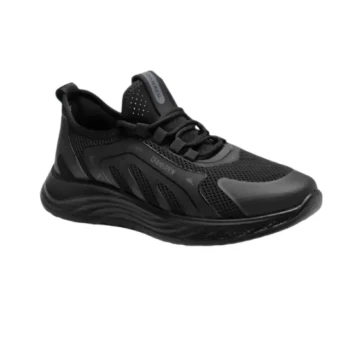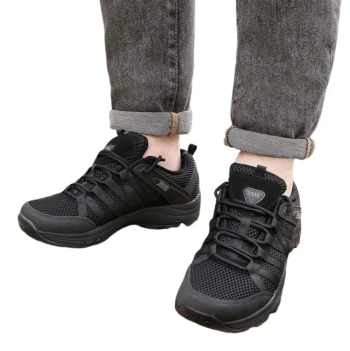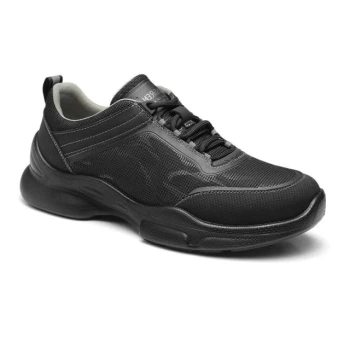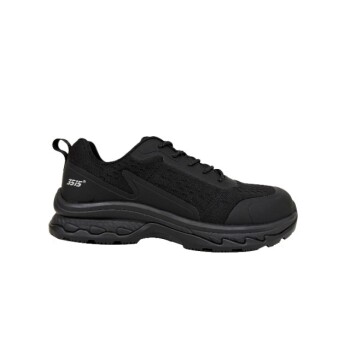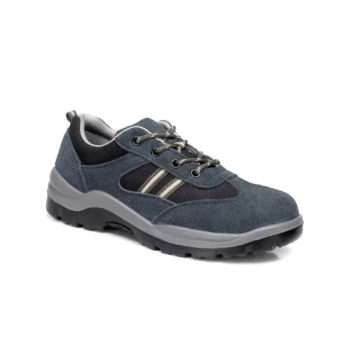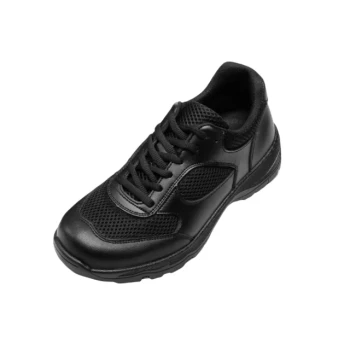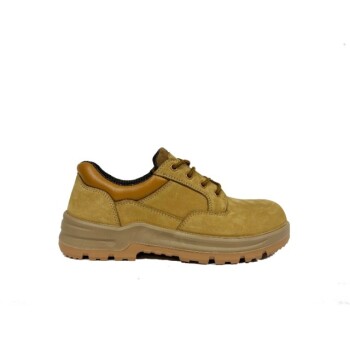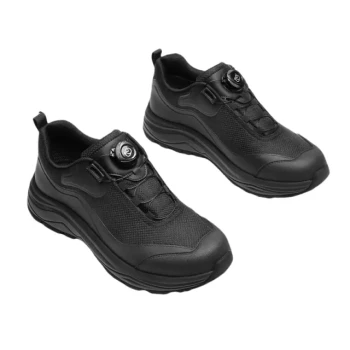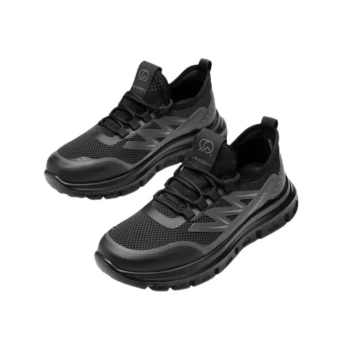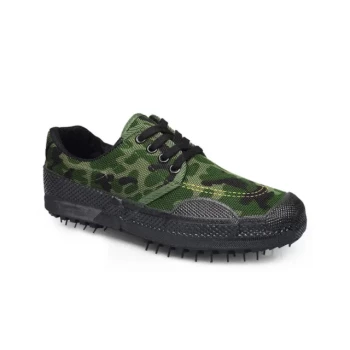First, I need to understand the user's situation. They're professionals seeking clarity on a confusing topic with potentially significant safety implications. My role is to cut through the jargon and provide a definitive, actionable resource.
The user likely wants to know the actual difference between "non-slip" and "slip-resistant" shoes, but more importantly, they need to understand what features to focus on to truly protect themselves (or their employees). They’re looking for trustworthy advice.
To address their needs, I'll structure the guide as follows:
- Opening: I'll begin by directly answering the question and stating that the terms are interchangeable but "slip-resistant" is more accurate.
- Core Takeaway: I will use a blockquote to distill the core message: it's not the label that matters but the shoe’s construction and verifiable features. This will frame the reader's expectations from the start.
- Main Body: I’ll dive into the details, covering the problems with terminology and explaining what actually makes a shoe safe. This is where I'll get technical.
- I'll break down the terminology issue, highlighting the lack of regulation and the prevalence of marketing claims.
- I'll then shift focus to what does matter: the outsole material (high-grade rubber), the tread design, and official safety ratings, if available.
- I'll also address the limitations - that no shoe is "slip-proof," wear and tear affect performance, and surface conditions matter.
- Conclusion: I’ll offer actionable advice based on the user's priorities (workplace safety vs. general stability). The takeaway will be about making informed choices based on physical features, not marketing hype.
I'll keep the language clear and concise, with short paragraphs, bolding, and headings for easy scanning. My goal is to be authoritative, but also empathetic, ensuring that the reader can easily grasp the key concepts and apply them. I need to make sure that this guide is genuinely helpful. In practice, there is no meaningful difference between the terms "non-slip" and "slip-resistant" as they are used in the consumer market. Both labels describe footwear designed with specialized soles to reduce the risk of falling on slick surfaces. However, "slip-resistant" is the more accurate and professionally preferred term, as no shoe can completely eliminate the risk of a slip.
The core issue is not the marketing term used on the box, but the lack of a regulated industry standard for what constitutes a "non-slip" shoe. Your focus should be on the verifiable features of the shoe's construction and any official test ratings, not the label itself.
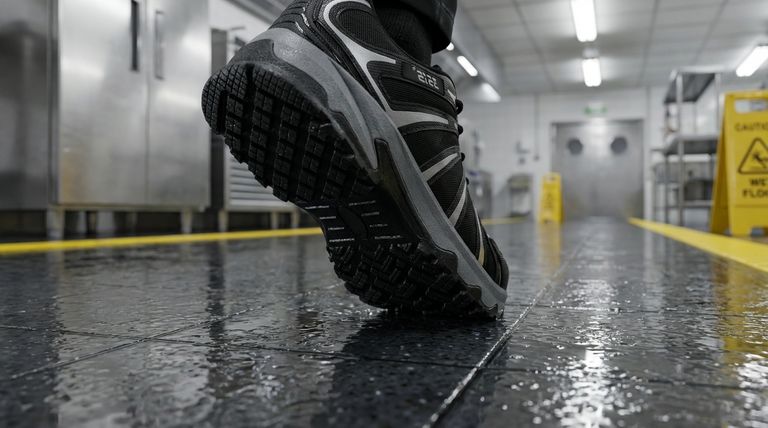
The Problem with Terminology
The confusion between these terms stems from their use in marketing rather than from a technical distinction. Understanding this context is the first step toward making a safer choice.
A Lack of Regulation
There is no government-regulated or universally enforced definition for "non-slip" or "slip-resistant." This means any brand can use these terms as a marketing claim without needing to meet a specific performance benchmark.
Why "Slip-Resistant" is the Better Term
Safety professionals and scientific organizations prefer the term "slip-resistant." This wording correctly implies that the footwear helps reduce the risk of slipping but does not—and cannot—guarantee a total prevention of falls.
An Array of Interchangeable Labels
You will encounter many similar terms, including "non-skid," "anti-skid," and "anti-slip." In the marketplace, these all refer to the same general goal: providing better traction on hazardous surfaces.
What Actually Defines a Safe Shoe?
Since you cannot rely on the marketing label alone, you must learn to identify the physical characteristics that provide genuine slip resistance. The critical features are found in the shoe's outsole—the part that contacts the floor.
The Outsole Material
The most effective slip-resistant shoes use a soft rubber compound for the outsole. This material is pliable and can conform to microscopic imperfections in a floor surface, maximizing grip, especially on wet or greasy floors.
The Tread Design
The pattern of the sole is engineered for safety. Look for intricate, open tread patterns with many small grooves. These channels are designed to divert liquid out from under the shoe, allowing the rubber to make direct contact with the surface, much like the tread on a car tire in the rain.
Objective Safety Ratings
For professional environments, the most reliable indicator of performance is an official safety rating. Look for standards like the ASTM F2913-19 (or its latest version), which is the standard test method for measuring shoe slip resistance. A shoe that has been certified to meet such a standard provides proven, objective protection.
Understanding the Limitations
Even the most well-designed shoe has its limits. Acknowledging these trade-offs is crucial for maintaining personal safety.
No Shoe is "Slip-Proof"
It is essential to remember that slip-resistant shoes provide a higher degree of safety, but they do not make you immune to falling. Environmental awareness and walking with caution remain your primary safety tools.
Wear and Tear Reduces Effectiveness
The features that make a shoe slip-resistant degrade over time. As the soft rubber outsole hardens and the tread pattern wears down, the shoe's ability to grip diminishes significantly. You must inspect your footwear regularly for signs of wear.
Performance Varies by Surface
A shoe's grip depends on the specific type of contaminant on the floor. A sole that performs exceptionally well on a water-covered tile floor might offer less protection on a surface coated in oil or grease.
How to Choose the Right Footwear for Your Needs
Ignore the ambiguous marketing and focus on the factors that verifiably contribute to safety.
- If your primary focus is workplace safety in a regulated industry: Look for shoes that explicitly state they meet an official ASTM or similar safety standard and check your employer's specific PPE requirements.
- If your primary focus is general stability for everyday use: Inspect the shoe's outsole for a soft, pliable rubber material and a deep, complex tread pattern designed to channel away liquids.
- If your primary focus is evaluating your current shoes: Check the soles for wear. If the tread patterns have become smooth or shallow, it is time to replace them, as their protective qualities are compromised.
Ultimately, making an informed choice comes down to understanding the shoe's physical construction and objective ratings, not its marketing label.
Summary Table:
| Feature | Non-Slip (Marketing Term) | Slip-Resistant (Preferred Term) |
|---|---|---|
| Definition | General marketing claim | Scientifically accurate term for traction |
| Regulation | No industry standard | Often meets ASTM F2913-19 test standards |
| Key Focus | Outsole material & tread design | Verifiable safety ratings & construction |
| Best For | Everyday stability needs | High-risk workplaces (e.g., kitchens, factories) |
Protect your workforce with certified safety footwear from 3515!
As a large-scale manufacturer, 3515 produces a comprehensive range of slip-resistant shoes and boots designed for distributors, brand owners, and bulk clients. Our footwear meets rigorous safety standards (like ASTM F2913-19) and features high-traction outsoles, durable materials, and ergonomic designs tailored for high-risk environments.
✅ Ideal for: Restaurants, hospitals, factories, warehouses, and any workplace where slip prevention is critical. ✅ Our Value: We combine advanced manufacturing capabilities with a deep understanding of occupational safety to deliver footwear that reduces accidents and enhances productivity.
Ready to equip your team with reliable, safety-compliant footwear? Contact our experts today for bulk pricing, custom designs, and samples!
Visual Guide
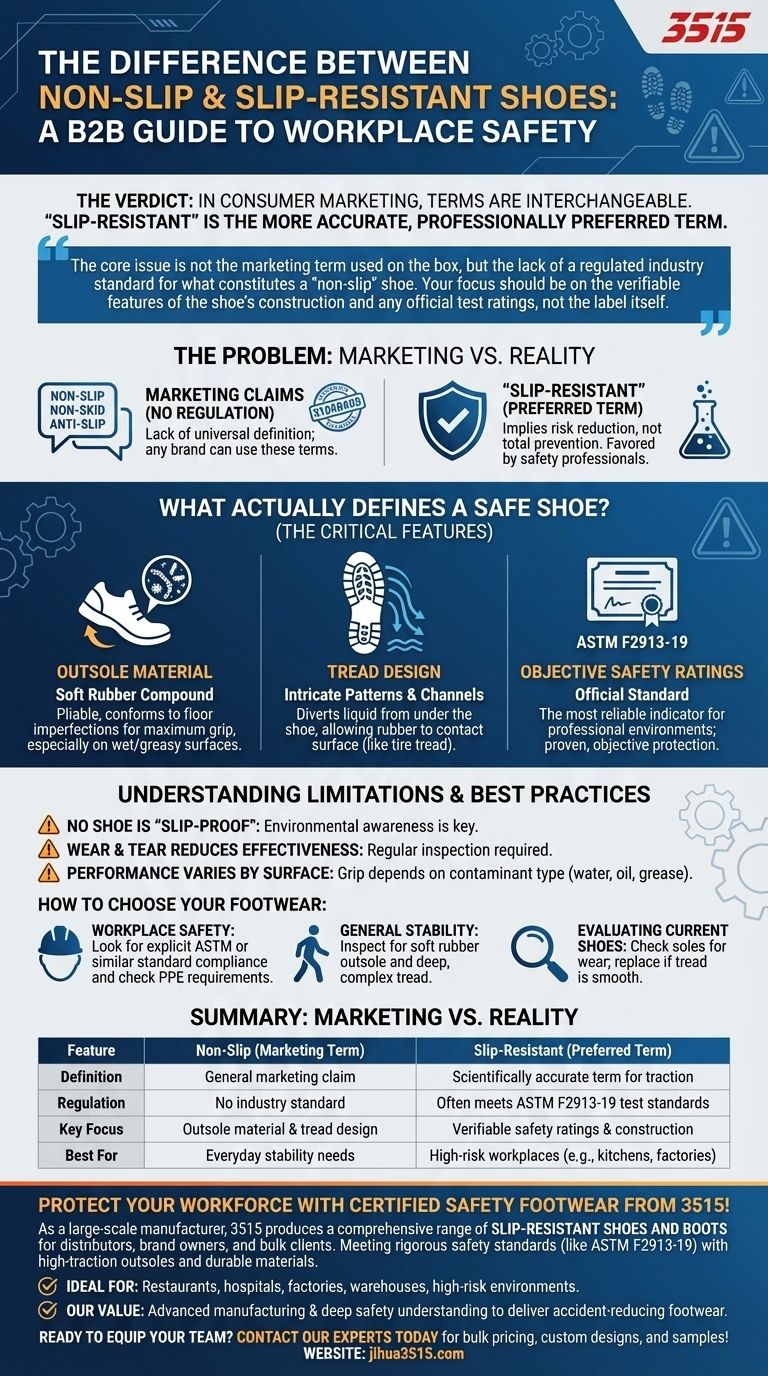
Related Products
- Premium KPU Athletic Safety Shoes for Wholesale
- Wholesale Breathable & Cushioned Training Shoes Custom Factory Production
- Durable Rubber-Soled Utility Shoes for Wholesale & Custom Brand Manufacturing
- Lightweight Breathable Training Shoes for Wholesale & Custom OEM Manufacturing
- Wholesale Breathable Training Shoes Custom Athletic Footwear Manufacturer
People Also Ask
- Why does the material performance of professional slip-resistant shoes offer superior safety? Hardware vs. Behavior
- What is the primary role of anti-slip safety shoes in palm oil mill boiler stations? Ensure Worker Safety & Stability
- Why are chemical cleaners containing surfactants used in slip-resistant footwear research? Achieve Critical Safety.
- How does outsole traction contribute to workplace safety? Slip-Resistant Footwear Engineering
- Why are clogs suitable for healthcare and culinary professionals? Unlock Superior Safety & Comfort
- Why is the weight of the shoe a key factor for worker comfort? Maximize Efficiency with Lightweight Professional Gear
- What role do slip resistant safety shoes play in workplace safety? Prevent Slips, Trips, and Falls
- How do non-slip shoes perform in wet conditions? Superior Traction for Safety & Stability
